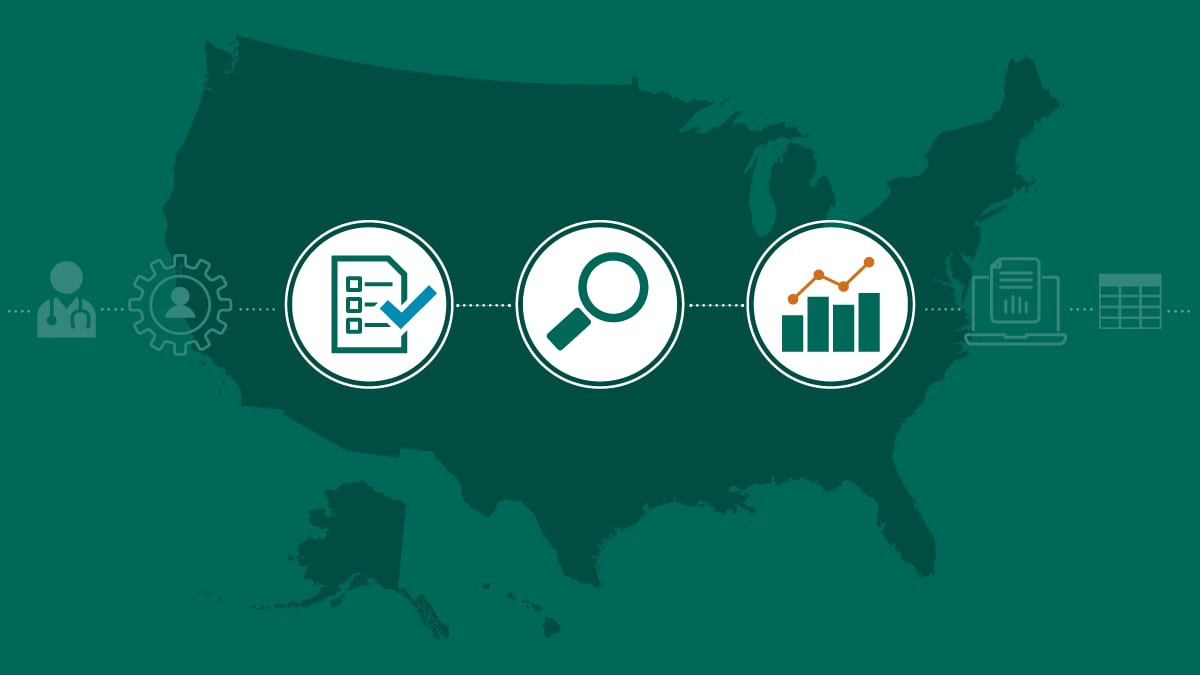At a glance
- The National Center for Health Statistics (NCHS) measures health characteristics and conditions across the United States.
- NCHS also monitors health trends and emerging health issues.
- Public health professionals, policymakers, and many others use NCHS data and statistics to understand and address health challenges across the country.

Our data
NCHS is the nation's principal health statistical agency. NCHS provides critical evidence to inform public health policy, monitor programs, track progress, and measure change.
As part of the Federal Statistical System, NCHS is the nation's source for official health statistics. NCHS has decades of experience collecting and analyzing health data to produce objective, credible, and relevant health statistics to support research and public policy. NCHS also has expertise in building and maintaining the services and systems required to provide health data, and developing and applying the methods needed to ensure its quality.
A culture of quality
The picture of American health
NCHS data help us understand the physical and mental health of Americans across our lifetimes. We collaborate with public and private health partners and leverage multiple data sources to get a broad view of the nation's health, influences on health, and health outcomes.
We collect information about births, deaths, and nearly everything health-related in between, including—
- Growth and development across our lifetimes
- Sexual health and behaviors, use of birth control, and pregnancy
- Diseases, like cancer and heart disease, and health conditions, like high blood pressure and depression
- Behaviors that affect our health, like what foods we eat, how physically active we are, and whether we smoke or drink alcohol
- Events and experiences that affect our health, like injuries and exposures to chemicals in the environment
- Our ability to perform daily activities (functioning) and disability
- Healthcare access and use, health insurance, health services, and the healthcare system
Timely, accurate, and actionable
At NHCS, we provide critical information to answer the most important health questions. We do that by—
- Collecting data to describe and understand the full range of public health issues, including emerging health threats
- Analyzing data to identify health problems, disease patterns, and characteristics and behaviors that increase the risk of illness, injury, or death (risk factors)
- Comparing data across time, groups, and geographic areas to understand trends
- Identifying and tracking health data by social, economic, geographic, and other characteristics to understand, promote, and protect the health of all Americans
- Sharing data, statistics, and resources to inform actions, policies, and research that improve the health of the American people
Widely accessible
NCHS shares our data, statistics, and analysis as widely as possible. We collect this information on behalf of the American people. These resources and the insights they provide belong to all of us.
We share our work through—
- Statistical reports that present our data and analysis on health topics of interest and concern
- Data dashboards, visualizations, and query systems displaying statistics in formats that are easy to access and understand
- Publicly available data files from our health surveys and vital statistics system for others to use in their own analysis and research
- Our Research Data Center, which protects individual privacy and confidentiality while providing secure access to detailed data for approved research purposes
Subscribe now!
For evidence-based solutions
A wide range of groups use NCHS data and statistics to guide their efforts to improve the health of Americans.
- Policymakers—to set priorities for research and prevention programs, track implementation of health policies and programs, and evaluate outcomes
- Public health professionals—to identify and monitor health problems, risk factors, and disease patterns, and assess the impact of health recommendations and programs
- Healthcare providers—to evaluate health and risk factors of their patients
- Researchers—to study trends in health, healthcare delivery, risk factors, and outcomes
- Media and advocacy groups—to find and share accurate information about health issues
- Businesses leaders—to support and guide the health-related activities of trade associations and private companies
